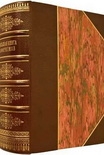American Sherlocks by Nick Rennison (good books to read for 12 year olds .TXT) 📗

- Author: Nick Rennison
Book online «American Sherlocks by Nick Rennison (good books to read for 12 year olds .TXT) 📗». Author Nick Rennison
‘We have been waiting some time for you, Mr Lamson,’ he remarked; ‘but under the circumstances we were willing to delay our work until your return. The affair undoubtedly will prove a simple one, and it is too bad you have gone to the expense of importing a private detective.’ With the concluding words he shot a brief, but unfriendly, glance in Quincy’s direction.
Lamson made no reply to the speech, other than by a brief nod of recognition, and, stepping quickly to the door, he unlocked it and threw it open, standing aside to allow the entrance of the officials. Like a pack of hounds unleashed the local men dived through the door, and into what was apparently a living room, Quincy and Lamson following in their rear. On entering the room all paused abruptly and stared about them, the scene well warranting the sudden halt.
The room was, indeed, in a terrible state of disorder. Furniture had been overturned, some had been broken, all had been misplaced, and on every hand were to be seen signs of violence and confusion. The main feature, however, was to be found in the figure of a little woman who lay almost in the very middle of the room. The body lay face down, the hair dishevelled and the clothing somewhat disarranged from the struggle, while from its side and several inches below the left armpit protruded the hilt of a heavy and strong-bladed knife. There were very few signs of blood, as the wound had evidently bled inwardly; but the scene was ghastly enough without that.
Exercising the prerogative of his office, the medical examiner strode forward and knelt at the side of the body, gently turning it over. As he did so the watchers instinctively started, for on the woman’s face was revealed such an expression of fierce and malignant hatred as it is seldom the misfortune of any person to gaze on. The lips were drawn back in a snarl of rage which left exposed the worn and ragged teeth, and the eyes, fixed and staring, seemed to hold in their depths a fury scarcely human.
‘Lord!’ muttered Lamson, repressing a shudder. ‘She surely didn’t die with any love of man in her heart.’
The medical examiner grimly held up the knife. ‘From here on it’s your work, gentlemen,’ he observed. ‘Make what you can of this.’
The chief took the knife, and all stared curiously at it. It was an ordinary wooden-hilted knife of the kind to be found in any market and, from the thinness of the blade, it had evidently known long service and many grindings. After nodding his head over it several times, the chief passed the knife on to Quincy with the air of a man wishing to be courteous, although hardly recognizing the possibility of any value in the act. To Quincy, judging from his expression, the knife meant much or nothing. He glanced at it keenly, turned it over several times and then, without comment, returned it to the chief.
The search for clues then started in earnest, the two members of the regular force burrowing amidst the debris in the room like terriers after a rat. They pulled open every drawer, peered under or through every article of furniture, and minutely examined every square inch of space in the room. Now and then the chief would pause to glance speculatively at Quincy, as though in fear that the private detective might stumble on a clue that the regulars had overlooked. After each scrutiny, however, he invariably returned to his search, appearing satisfied that Quincy’s aimless wanderings would net him nothing of value in the way of clues.
‘By the way, Chief,’ Quincy interrupted at length, ‘may I inquire as to what it is that you expect to find in this room?’
The chief eyed him suspiciously before replying. ‘Well, it’s not customary to hand our suspicions to outsiders, but, as you are, in a way, one of us, I don’t mind telling you. Of course we are looking for possible clues which the murderer may have left behind, but primarily I want to discover whether or not the old woman’s hoard of money is missing.’
‘I see, Chief; but, unless we know, which we do not, where the money was hidden, how are we to be able to tell whether or not it is gone? We suspect, of course, but we do not know, that there was money hidden in the house. It is hardly likely that the woman would have kept any quantity of it hidden away in a bureau drawer. It strikes me that if she had money to hide she would have placed it in a more secret hiding-place under the floor boards, behind a stone in the cellar wall, or in some similar crevice. We might search a week and still not find the place. And, even if we should chance to find the money, all we should have gained would be a knowledge that the murderer did not take it. Look over the room. There was no search for money previous to our coming. That furniture was all disarranged during the struggle. Either the murderer knew exactly where the money was hidden, and took it from its hiding-place, or else he was actuated by some other motive, entirely, and had neither thought nor regard for the money that might be here.’
The chief listened stolidly to Quincy’s summing up of the matter; but he seemed unimpressed.
‘You are at liberty to follow any method you please in the conduct of your search,’ he said coldly; ‘but the regular police must act under my orders, and I see no necessity for changing the orders because of your ingenious theory. I am experienced in these matters, Mr Sawyer, and I judge that you are not; so please don’t confuse my men by advancing any other theories. This murder was for the purpose of robbery, and for no other





Comments (0)